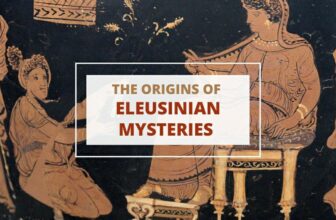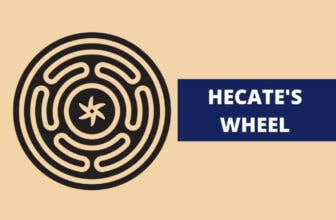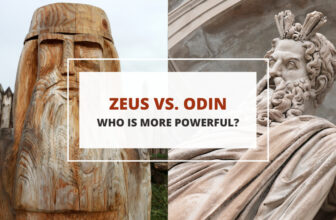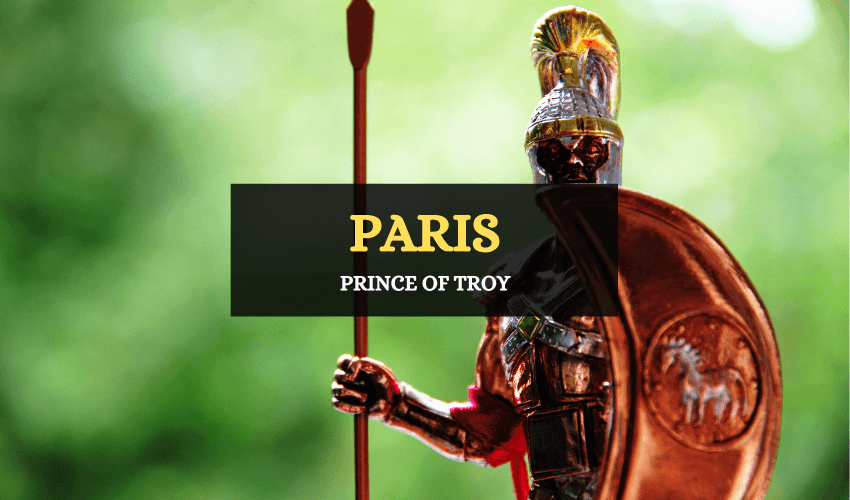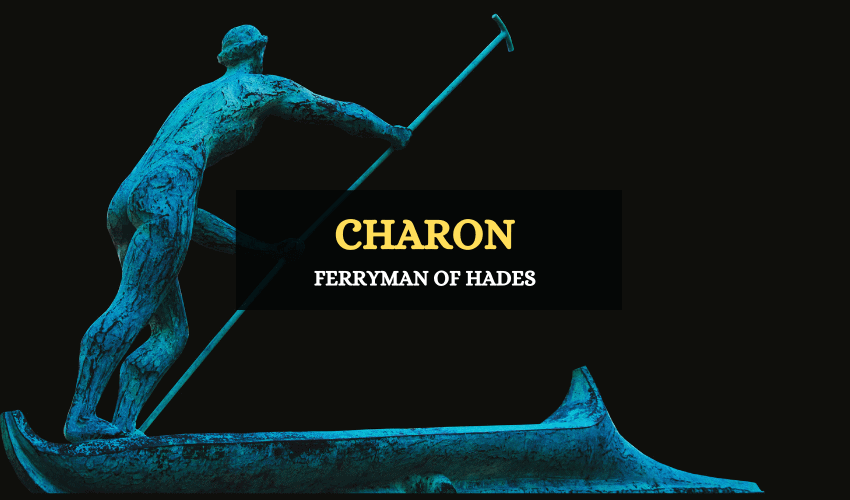
Table of Contents
In Greek mythology, the great Charon was in charge of ferrying the dead to the underworld, a task he undertook with dignity and patience. As the ferryman of Hades, Charon had an important role and many heroes who went into the underworld for various purposes, would return from there, ferried by Charon. Let’s take a look.
Who Was Charon?
Charon was the son of Nyx, the primordial goddess of the night, and Erebus, the primordial deity of the darkness. As a son of Nyx, Charon’s family consisted of a myriad of dark beings with associations to death, the night, and the underworld. Although various accounts say he existed in Greek mythology before the Olympians, Charon does not appear in the writings of the early poets of Greece. He may have been a later addition to the Greek pantheon of deities.
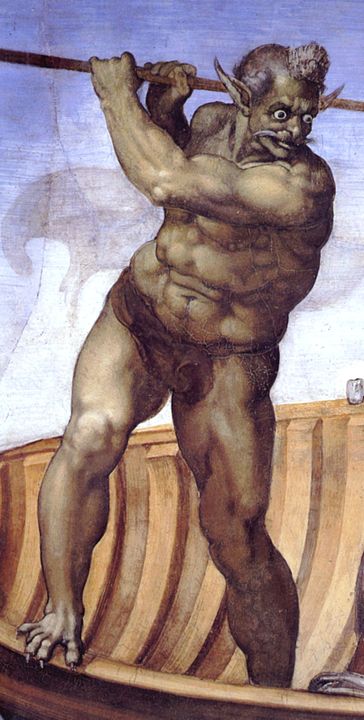
The depictions of Charon show him as an ugly bearded man at the stern of a skiff with an oar. His apparel consisted of a tunic and a conic hat. Modern artwork, however, tends to show him as a frightening demon of tremendous strength, often with a mallet, associating him with hell and the devil.
Charon’s Role in Greek Mythology
Charon was the ferryman in charge of transporting the dead to the underworld. He journeyed through the rivers Styx and Acheron and carried the souls of those who had received the rites of burial. To do this, the ferryman used a skiff. All who used Charon’s services had to pay with an obolos, an ancient Greek coin.
Because of this belief, Ancient Greeks were typically buried with a coin their mouths for Charon’s fee to ferry them across the River Styx. Charon is treated with great respect by mortals and gods alike, revered for his role in taking the dead to the ever after.
If people did not perform the rite and the dead person arrived at the river without the coin, they were left to wander the earth as ghosts for 100 years. Some myths propose that these ghosts haunted those who failed to offer them the correct rite. In this way, Charon played an important role and influenced the burials in Ancient Greece.
Charon the Ferryman of the Dead
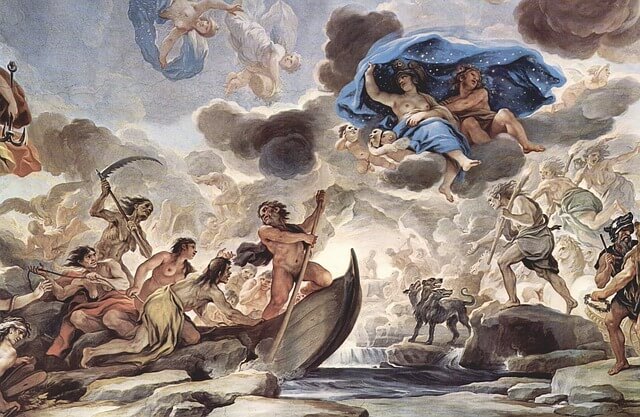
Charon appears in the writing of a variety of poets such as Aeschylus, Euripides, Ovid, Seneca, and Virgil. His role remains unchanged in these depictions.
The underworld was not a place for the living, and Charon was not supposed to allow living people to enter the underworld. However, there are many myths in which heroes and gods pay Charon’s fee for him to ferry them to the underworld and back. Here are some of the most popular myths involving Charon and a living mortal or god:
- Psyche – In her search for Eros and as her service for Aphrodite, Psyche, the goddess of the soul, is said to have traveled to the underworld in Charon’s skiff.
- Odysseus – During Odysseus’ calamitous return home, the enchantress Circe advised the Greek hero to seek the Theban seer, Tiresias, in the underworld. To get there, Odysseus managed to convince Charon to ferry him across the Acheron with his eloquence.
- Orpheus – Orpheus, the musician, poet and prophet managed to convince the ferryman to take him to the underworld with his singing. Orpheus wanted to look for his wife, Eurydice, who had been bitten by a snake and died untimely. Charon, however, only accepted the melody as a one-way trip.
- Theseus – Theseus paid Charon the fee required to travel to the underworld when he tried to abduct Persephone. However, some myths say that, just as Odysseus did, Theseus also convinced Charon with his oratory skills to take him to ferry him across the river without paying.
- Dionysus – the god of wine, also traveled in Charon’s skiff when he visited the underworld to look for his mother Semele, who had died upon looking directly at Zeus’ glorious godly form.
- Heracles – Heracles also traveled to the underworld to complete one of his Twelve Labors as commanded by king Eurystheus. The task consisted of fetching Cerberus, the three-headed dog who guarded the gates of the underworld. To get there, Heracles convinced Charon to take him in his skiff. Heracles, unlike Theseus and Odysseus, used his strength to intimidate the ferryman and used his services without paying.
Later authors wrote that this service of ferrying the living into the underworld came at a cost to Charon since Hades punished him each time he did this. His punishment consisted of Charon being chained for long periods of time. The souls of the deceased remained wandering in the sandbanks of the Acheron until the ferryman returned.
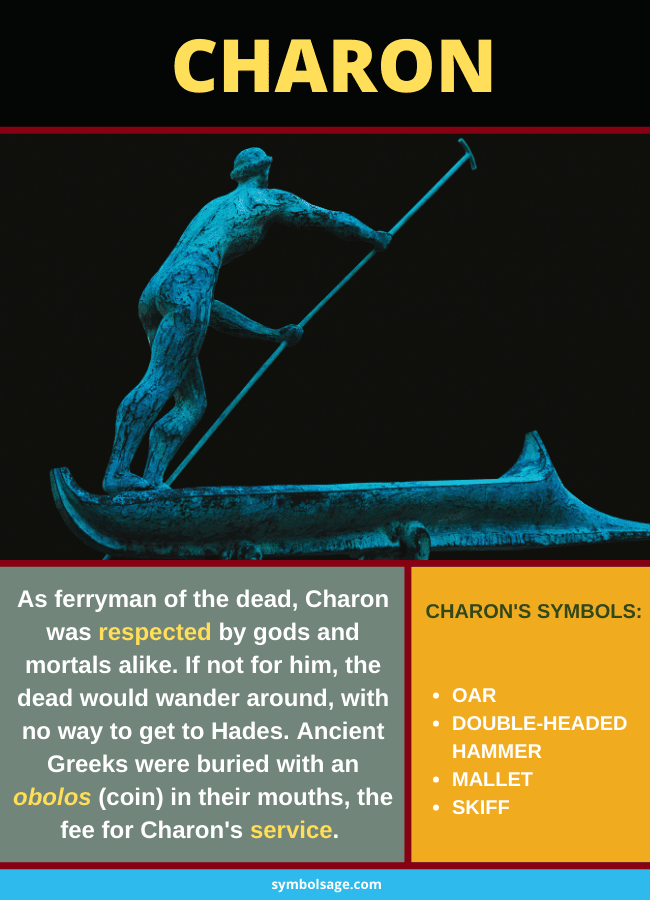
Influence of Charon
The payment Charon requested to take souls to the underworld marked how people made burial rites in ancient Greece. The idea of ghosts tormenting people and wandering the earth might have come from the portrayal of souls wandering around because they could not pay the ferryman’s fee. In this sense, Charon influenced Ancient Greece’s traditions and also the superstitions of the western world.
In Brief
Charon had one of the most important jobs in Greek mythology since his carrying souls to the underworld kept the order of things running in the world. The superstition regarding ghosts and their roaming the earth could have had its origin in Ancient Greece thanks to the famous ferryman. Charon was a centerpiece in the travels of heroes and gods to the underworld, which makes him a noteworthy figure.




